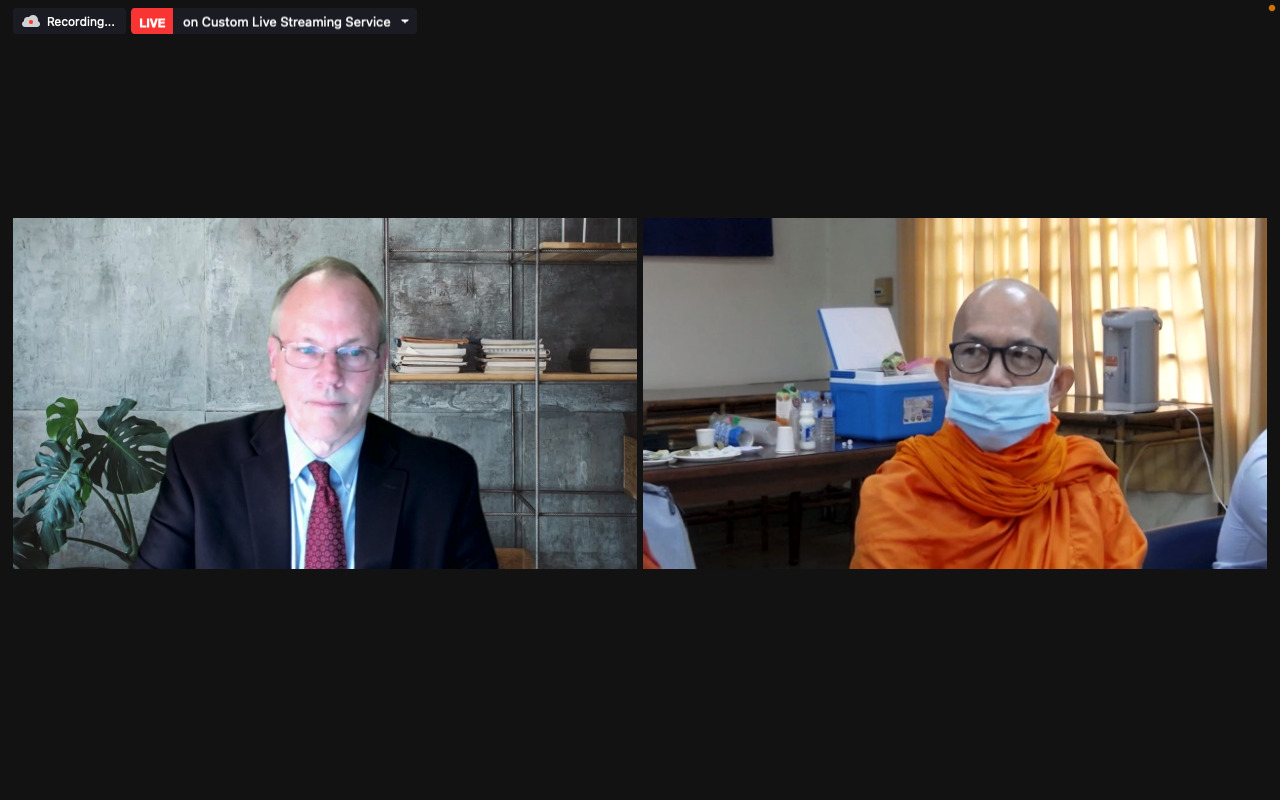With support from the Asia Pacific Center for the Responsibility to Protect, the Cambodian Institute for Cooperation and Peace organized a public lecture on 13 October on the theme of “Reflections on the Khmer Rouge Tribunal: Its Past, Present, and Possible Futures” by a distinguished speaker, ProfessorAlex Hinton, Distinguished Professor of Anthropology, Director of the Center for the Study of Genocide and Human Rights, and UNESCO Chair in Genocide Prevention, Rutgers University, USA. Here are the takeaways from the public lecture:
1 – This public lecture is an opportunity for deep discussions of path trends, opportunities and challenges in the present time and in the future in the field of transitional justice which has taken place during the 16 years of the Khmer Rouge tribunal. Participants learn from the distinguished speaker that transitional justice has a role to play in moving forward Cambodia in seeking reconciliation and ensuring the non-recurrence of the Khmer Rouge regime.
2 – Transitional justice can help countries such as Cambodia to cope with its dark history by reinstating the rule of law, seeking accountability and allow society to come to terms with serious and systemic crimes committed during the Khmer Rouge regime by redressing the truth, justice, reparations and guarantees of non-recurrence of the genocidal regime of Pol Pot.
3 – With the closing down of the KR tribunal, its legacy has helped victims of the KR regime cope with the pain of the past. Looking down into the future, the ECCC hybrid court has helped bringing justice through accountability to the Cambodian victims who lost loved ones and suffered traumas from the Khmer Rouge perpetrators when Democratic Kampuchea ruled Cambodia and what this means for the future efforts to prevent mass atrocities in Cambodia to ever occur again.
4 – Prof. Alex Hinton discusses the paradoxical transitional justice mechanisms, contrasting the opportunity for such mechanisms to give voice to the victims by providing a host of social goods, including not just peace, reconciliation, and justice but also the truth with the challenge related to the criticism that transitional justice mechanisms has failed to attain its transformative goals as well as the partial and often political truth they may afford.
5 – Prof. Hinton has explained very well the Khmer Rouge Tribunal’s path, present and future as part of a larger process of transitional justice in Cambodia that has a long history transitioning into a new phase with moral imagination to think about the future of transitional justice as a real expectation rather than simply an aspiration.
6 – In the face of persisting challenges toward transitional justice in such cases of military coup in Myanmar and crisis in Ukraine, stronger efforts are need to enforce transitional justice to cope with violations by state actors, impose more robust international mechanisms to prevent atrocity crimes and repair harms that have been done, and at the same time enforce universal jurisdiction over international crimes such as genocide, crime against humanity, war crime, and ethnic cleansing which can open up new possibilities for accountability through judicial process with international standard.











